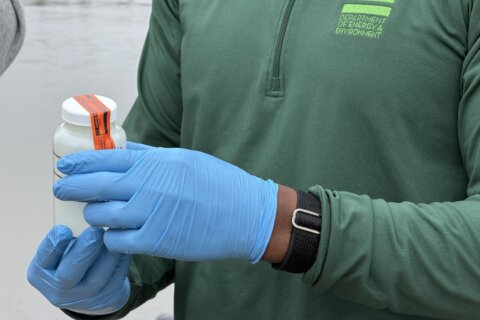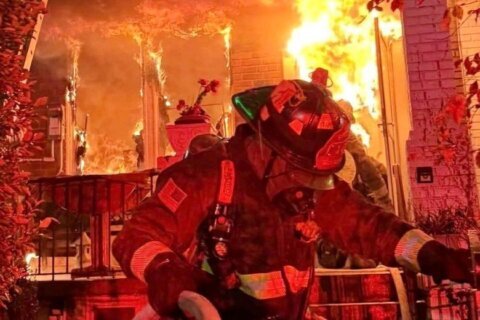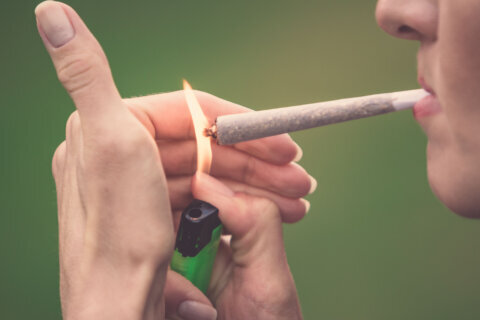One specific city block in D.C.’s Shaw neighborhood is home to nearly two dozen nightlife establishments — a total of 23 liquor licenses have been issued for the 1900 block of 9th Street Northwest near the U Street corridor.
“That’s just too many,” said Leola Smith, who lives just a block away.
“My grandson got robbed five blocks from the house,” Smith said. “They put guns in his face. He moved away.”
Smith, who has lived in Shaw since 1981, told WTOP that the outsized number of bars and taverns on the block, and the thousands of people who go to those establishments every week, is fueling an uptick in crime.
Smith is a member of the Westminster Neighborhood Association. She and two other members spoke with WTOP about the association’s recent petition to D.C.’s Alcoholic Beverage and Cannabis Board to pause the issuance of new liquor licenses for that stretch of 9th Street NW.
The petition points to the high level of property and violent crime in and around the proposed moratorium zone.
According to the Metropolitan Police Department’s Crime Map, Police Service Area 305, which includes the 1900 block of 9th Street NW, had the highest number of crimes in the city year to date, 1,344 in total.
Richard Bianco, an attorney who represents local nightlife establishments, said the moratorium is too broad.
“It’s not fair to somebody who has built this thing up and who has been in the neighborhood, in most cases significantly longer than the folks who came there to this existing use and started complaining about it,” Bianco told WTOP.
He claimed the block would limit new licenses and stop business owners from transferring their licenses to another building in the zone if their current building lease is up. Bianco also said the petitioners are unfairly targeting businesses on one block when there are other bars and restaurants nearby.
“They’re sort of picking and choosing the folks they’re going to blame,” he said.
Westminster Neighborhood Association member Frank Chauvin said the high concentration of liquor licenses on the block has turned their residential neighborhood into a party spot.
“People that are coming to these clubs and leaving these clubs decide that our entire community is a place to party, drink, smoke pot and undertake loud activities that they wouldn’t do in their own neighborhood,” Chauvin said.
Both the Neighborhood Association and Bianco point to a failure in city planning and policy for contributing to the surge in crime.
“It’s just an A to Z policy failure going on, being affected by zoning, being affected by alcohol licenses, being affected by an understaffed police force,” said Chauvin.
While Bianco argued there needs to be a more robust police presence in the area, he said that the petition would not have any meaningful impact on public safety.
“The folks that are living there want some kind of action now,” he said. “This doesn’t accomplish that. What this accomplishes is essentially decimating the value of businesses and harming small business owners.”
The public comment period on the petition ended last week.
“The ABC Board will review the timely received comments and provided testimony and issue a determination in the coming weeks,” said Jared Powell, from the Alcoholic Beverage and Cannabis Administration, in a statement to WTOP.








